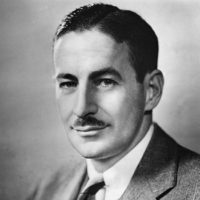
Edwin B. Astwood
Tufts Medical College
For contributions leading to the control of hyperthyroidism.
Few are so gifted and so fortunate as to discover, by brilliant personal experimentation, a wholly new area in the conquest of disease. Even more rarely does such a practical advance disclose, unpredictably, a segment of basic knowledge so unique, and so versatile, as to crate in turn investigative tools of potentially greater usefulness in a wholly different field.
The original production of goiter in animals by sulfonamides by Astwood and others was, at the time, only one of many isolated and wholly unintelligible observations. The patient, exhaustive use of this phenomenon as a reproducible experiment permitting the quantitative measure of the inhibition of thyroxin production by a long series of related compounds stands as a classic model of effective study. It yielded a revolutionary advance in a practical therapeutic procedure for the control of hyperthyroidism in man.
The extraordinary specificity of the effect exerted, the nature of the compounds exerting it, and new developments in other fields of biochemistry now give support to a new concept. They indicate a specific heterogeneity of nucleic acid anabolism, characteristic of special cell types. Such a principle, when thoroughly understood, may lead to other advances presently only dimly seen as possible.
